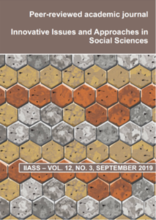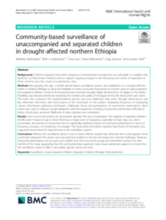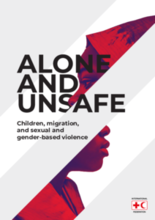childrens_living_arrangement
children_living_without_bio
Displaying 31 - 40 of 158
The objective of this study was to evaluate the health status and anthropometrical development of adopted children from Ethiopia living in southern Spain.
This study from Innovative Issues and Approaches in Social Sciences examined perceptions and practices of domestic adoption in Adama City in Oromia/Ethiopia. The study reveals that people’s perception towards adoption practice, adoptive parents and children is mixed; it could be positive and encouraging or negative and discouraging.
This paper examines all policy and laws related to families in the South, West, East and Central regions of sub-Saharan Africa.
The special issue of Emerging Adulthood titled “Care-Leaving in Africa” is the first collection of essays on care-leaving by African scholars. This article, coauthored by scholars from North and South, argues in favor of North–South dialogue but highlights several challenges inherent in this, including the indigenizing and thus marginalizing of African experience and scholarship and divergent constructions of key social concepts.
This study used a qualitative research design to uncover female care-leavers’ experience of aftercare in Ethiopia in 2017.
In this study, a mobile phone-based surveillance system was established in a drought-affected district in northern Ethiopia to assess the feasibility of using community focal points to monitor cases of unaccompanied and separated children.
In this radio segment from Newsday, Aselefech Evans, an Ethiopian adoptee who was adopted to the US at the age of six, speaks about her support of the Ethiopian Prime Minister's decision to adopt a child.
CPC Learning Network is seeking a Project Officer to implement a project to measure the impact of efforts to reduce child labor and modern trafficking.
The study's objective was to determine what successful caregivers of orphaned and vulnerable children (OVC) in diverse countries do to sustain their positive mental health.
This study seeks to improve understanding of the risks and types of sexual and gender-based violence faced by children who migrate on their own, as well as the unfortunate and widespread gaps in protection and assistance for these children.



